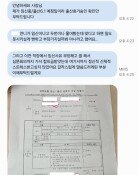Military mentality must be revamped to stay alert
Military mentality must be revamped to stay alert
Posted January. 27, 2023 07:38,
Updated January. 27, 2023 07:38
South Korea’s three major intelligence alert systems were found not to have worked properly when North Korea violated its airspace with unmanned aerial vehicles. Even after identifying the invasion, the military authorities reportedly shared the situation only through wire phones, without operating the “high-speed command system” for an emergency network between different military units, the “high-speed awareness dissemination system” for the execution of coordinated operations and the “integrated military intelligence processing system” for real-time analysis and response against provocations. Even worse, the invasion went unnoticed until the Capital Defense Command captured the intelligence as its Command Control and Alert (C2A) system was not activated with the adjacent military bases.
The interim result of the war readiness test, which was disclosed by the military authorities on Wednesday, a month after the drone invasion, reaffirms the abject failure of prompt responses and the incompetence of the South Korean military. The military authorities admitted to making the wrong judgment at the initial phase, thereby rendering their intelligence systems useless. The military official from I Corps, who first identified the North Korean drones, filed it under “spot report” instead of considering it as an emergency. They cited the possibility of a fault detection of birds as an excuse to delay reporting, but this led to the inaction of the alert systems, and they had to share the situations through wire telephones from the frontline to central command.
The military said there were no technical issues and labeled their mistake as a “matter of judgment,” admitting to their lack of competence. However, this is more serious negligence than a misjudgment rendered by the frontline troops. They need to reassess their mistake to see if this stemmed from a mentality permeating the military across the board. Behind the misjudgment, there may have been a loose sense of security, a deep-rooted complacency, and bureaucratic inertia that erodes the will to make a proactive response, ultimately being manifested in the form of a collective failure to counter security threats.
If frontline troops suffered some psychological pressure preventing them from making an immediate report after detecting potential issues, it would point to a serious problem lurking in an organization's culture. That is precisely what North Korea’s sly provocations are after: a military shackled by inertia. A major revamp must be carried out, thereby establishing an exceptional security posture and eliminating visible and invisible factors eroding the resolve for immediate actions. The military must reform its mentality while subjecting its commanders to stern admonition.
Headline News
- N. Korea launches cyberattacks on S. Korea's defense companies
- Major university hospital professors consider a day off each week
- Italy suffers from fiscal deficits from ‘Super Bonus’ scheme
- Inter Milan secures 20th Serie A title, surpassing AC Milan
- Ruling and opposition prioritize spending amid tax revenue shortfalls







